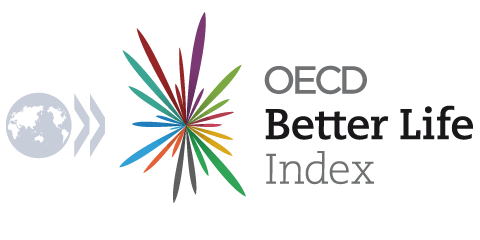Did you know?
| indicator | value | unit |
|---|---|---|
| Population | 0.3 | mil. |
| Visitors per year | 0.7 | mil. |
| Renewable energy | 84.7 | % |
How’s Life?
Iceland performs well in many dimensions of well-being relative to other countries in the Better Life Index. Iceland outperforms the average in jobs, health, environmental quality, social connections, civic engagement, safety and life satisfaction. It underperforms average in education. These assessments are based on available selected data.
Money, while it cannot buy happiness, is an important means to achieving higher living standards. In Iceland, the average household net-adjusted disposable income per capita is more than the OECD average of USD 30 490 a year.
In terms of employment, about 78% of people aged 15 to 64 in Iceland have a paid job, above the OECD employment average of 66%. Some 80% of men are in paid work, compared with 75% of women. In Iceland, 12% of employees work very long hours in paid work, above the OECD average of 10%, with 18% of men working very long hours in paid work compared with 5% of women.
Good education and skills are important requisites for finding a job. In Iceland, 76% of adults aged 25-64 have completed upper secondary education, lower than the OECD average of 79%. However, completion varies between men and women, as 74% of men have successfully completed high school compared with 78% of women. In terms of the quality of the education system, the average student scored 481 in reading literacy, maths and science in the OECD's Programme for International Student Assessment (PISA). This score is lower than the OECD average of 488. On average in Iceland, girls outperformed boys by 20 points, well above the average OECD gap of 5 points.
In terms of health, life expectancy at birth in Iceland is around 83 years, two years higher than the OECD average of 81 years. Life expectancy for women is 85 years, compared with 82 for men. The level of atmospheric PM2.5 – tiny air pollutant particles small enough to enter and cause damage to the lungs – is 6.4 micrograms per cubic meter, below the OECD average of 14 micrograms per cubic meter. In Iceland, 97% of people say they are satisfied with the quality of their water, much higher than the OECD average of 84%.
Concerning the public sphere, there is a very strong sense of community and high levels of civic participation in Iceland, where 98% of people believe that they know someone they could rely on in time of need, more than the OECD average of 91%. Voter turnout, a measure of citizens' participation in the political process, was 81% during recent elections, higher than the OECD average of 69%. Social and economic status can affect voting rates; voter turnout for the top 20% of the population is an estimated 88% and for the bottom 20% it is an estimated 82%.
When asked to rate their general satisfaction with life on a scale from 0 to 10, Icelanders gave it a 7.6 grade on average, higher than the OECD average of 6.7.
For more information on estimates and years of reference, see FAQ section and BLI database.
Topics
OECD in Action
OECD Economic Surveys: Iceland
OECD’s periodic surveys of the Icelandic economy. Each edition surveys the major challenges faced by the country, evaluates the short-term outlook, and makes specific policy recommendations. Special chapters take a more detailed look at specific challenges. Extensive statistical information is included in charts and graphs.
Read this report